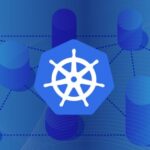A pod is a group of containers that are managed as a single unit. A container is an isolated, lightweight operating environment that shares the same host but can run independently from other containers or applications.
Containers and pods have several differences. Containers are portable, allowing them to be deployed in any environment regardless of the underlying OS. Containers also allow applications to be self-contained, with all their dependencies bundled together for easy deployment. While pods may contain multiple containers, they provide more flexibility in terms of resource utilization and orchestration. Pods can contain multiple containers that perform different tasks, giving them more control over how those tasks are managed.
Pods also offer better scalability than containers. As your application grows, you can scale pods horizontally, adding more containers to a single pod, whereas scaling containers requires creating additional containers each time. Additionally, containers are more difficult to manage at large scale due to the potential for resource contention. With pods, you can control what resources are shared across containers and which ones are kept separate.
In conclusion, pods and containers both play an important role in modern cloud computing environments, but there are key differences between them. Pods are more flexible and offer better scalability, making them a popular choice for organizations looking to run applications in distributed environments.


